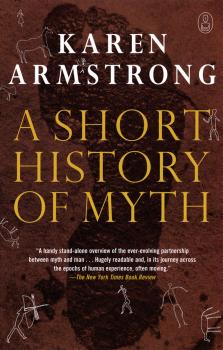ТОП просматриваемых книг сайта:
The Myths
Скачать книги из серии The MythsАннотация
“Human beings have always been mythmakers.” So begins best-selling writer Karen Armstrong’s concise yet compelling investigation into myth: what it is, how it has evolved, and why we still so desperately need it. She takes us from the Paleolithic period and the myths of the hunters right up to the “Great Western Transformation” of the last five hundred years and the discrediting of myth by science. The history of myth is the history of humanity, our stories and beliefs, our curiosity and attempts to understand the world, which link us to our ancestors and each other. Heralding a major series of retellings of international myths by authors from around the world, Armstrong’s characteristically insightful and eloquent book serves as a brilliant and thought-provoking introduction to myth in the broadest sense—and explains why if we dismiss it, we do so at our peril.
Информация о книге
Автор произведения Karen Armstrong
Жанр Старинная литература: прочее
Серия The Myths
Аннотация
Margaret Atwood returns with a shrewd, funny, and insightful retelling of the myth of Odysseus from the point of view of Penelope. Describing her own remarkable vision, the author writes in the foreword, “I’ve chosen to give the telling of the story to Penelope and to the twelve hanged maids. The maids form a chanting and singing Chorus, which focuses on two questions that must pose themselves after any close reading of the Odyssey: What led to the hanging of the maids, and what was Penelope really up to? The story as told in the Odyssey doesn’t hold water: there are too many inconsistencies. I’ve always been haunted by the hanged maids and, in The Penelopiad, so is Penelope herself.” One of the high points of literary fiction in 2005, this critically acclaimed story found a vast audience and is finally available in paperback.


